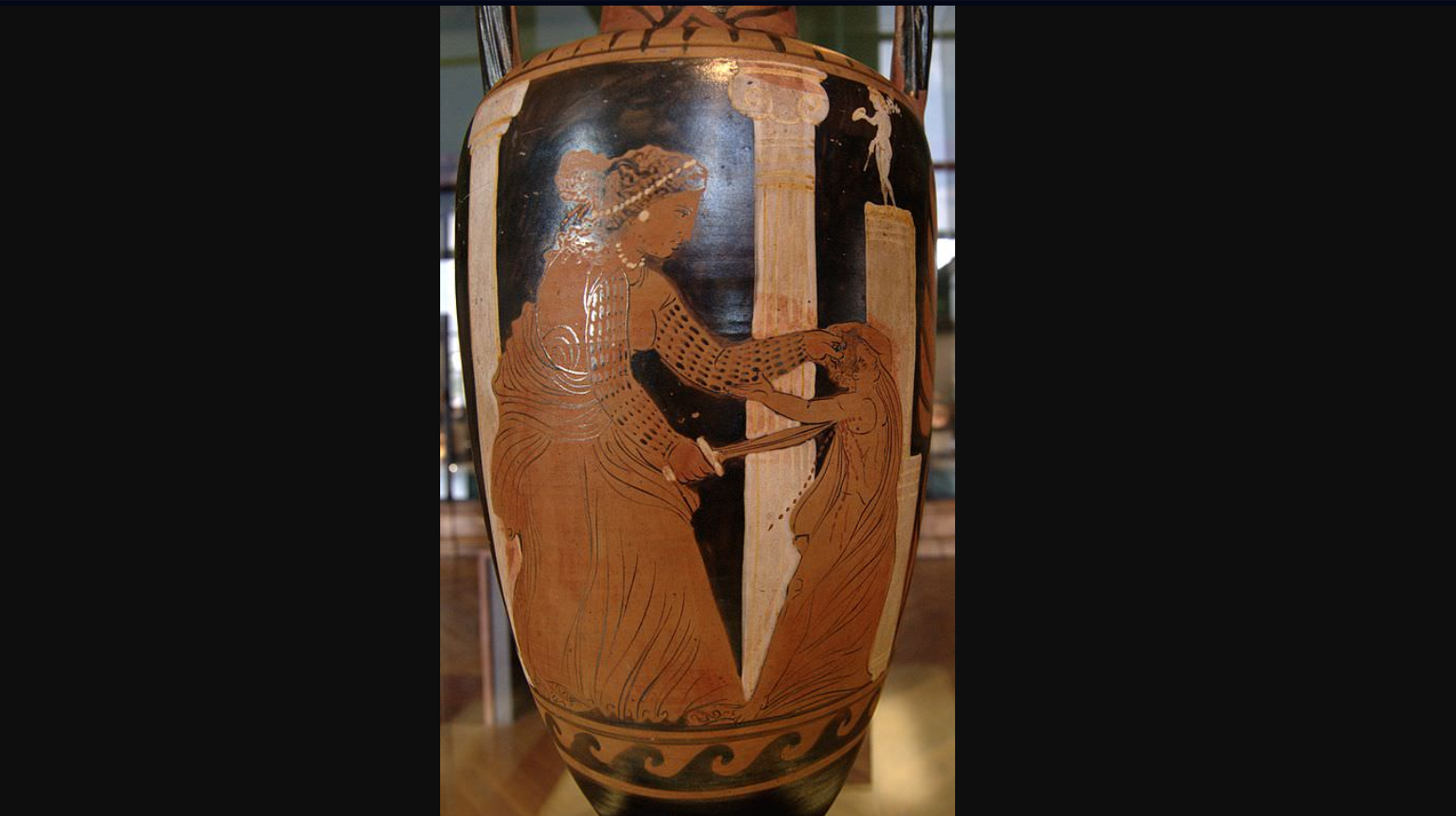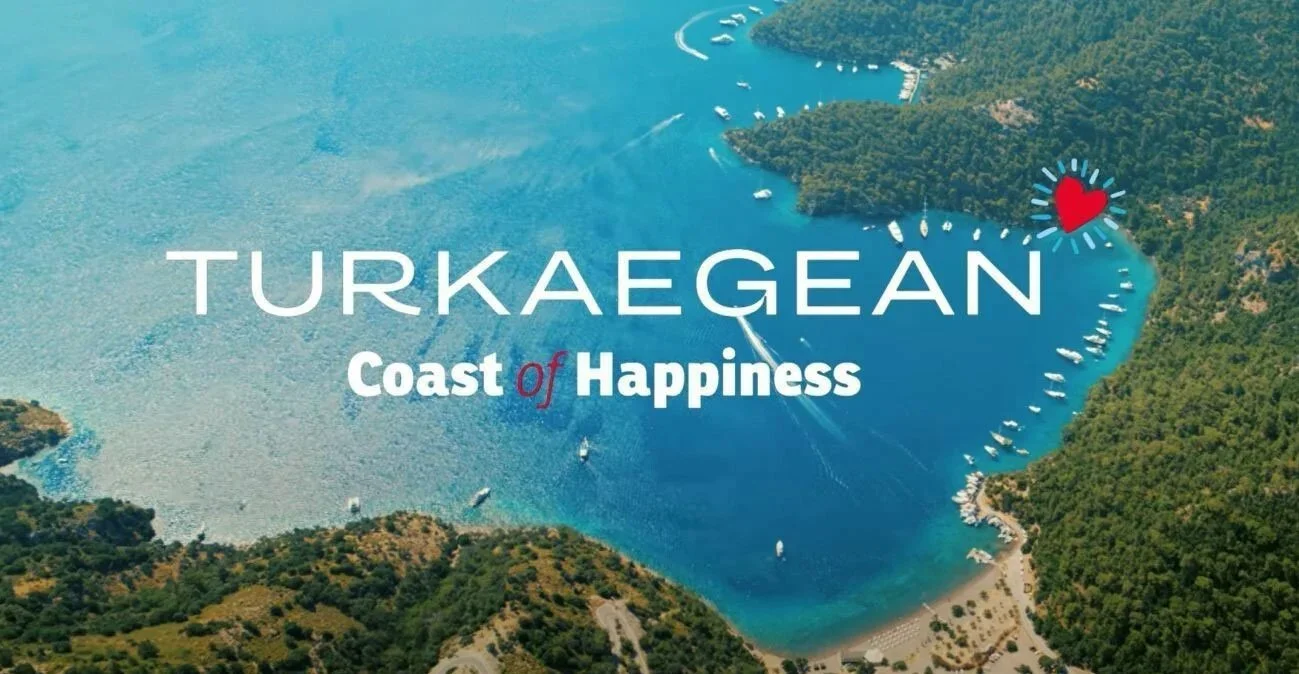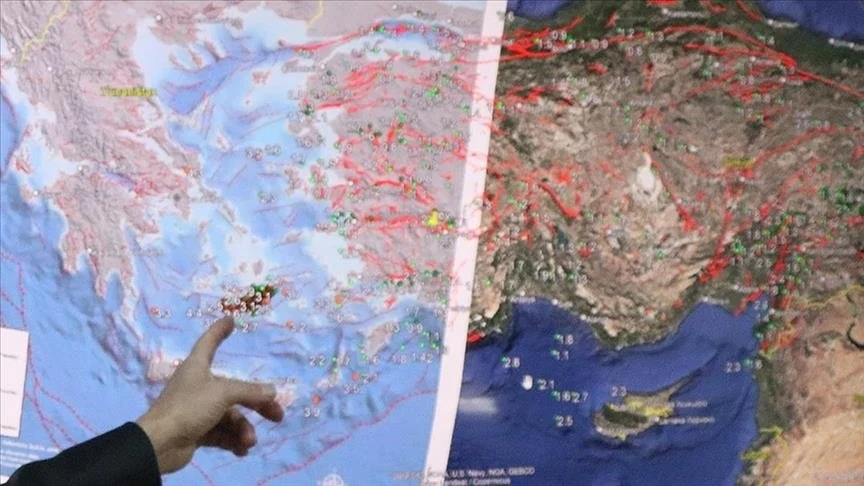The Peloponnesian War was the military conflict between Athens (Delian Alliance) and Sparta (Peloponnesian Alliance) that lasted a full 27 years (431-404 BC) and ended with Sparta's triumph and Athens' complete surrender.
By the end of the ruthless war, of course, there were many ambiguous disputes and outcomes that details made the difference. But there were also unprecedented situations, such as the surrender of the Spartan soldiers.
We are still in the first phase of the Peloponnesian, what historians call "Archidameios War" (431-421 BC), after the name of the king of Sparta who conquered Attica (but not Athens) in the first years of the conflict.
At the beginning of the war (430 BC), already in its second year, Athens was struck by the so-called "Plague of Athens", an unimaginable epidemic that decimated the city over the next 5 years and claimed the life of Pericles, among others.
Sparta magically gained the upper hand, simultaneously destroying the Athenians' farmland and seeing even their all-powerful navy drastically reduced in manpower. Nevertheless, Athens managed to win some emphatic victories, such as the conquest of Potidaea and the return of the Delian Alliance of Lesbos and Corfu.
And as the Spartans began to recover, capturing the valuable Plataea (and Amphipolis) and even defeating the enemy at their strongest element, the sea, an unexpected defeat was to come that set Sparta's morale down.
The decisive defeat at Pylos and the disaster at Sfaktiria in 425 B.C. eventually persuaded both sides to make a fragile peace in 421 B.C. (Nikeios Irini), which of course did not last, as both city-states proved extremely unwilling to abide by what had been agreed.
Of course, none of this would have happened without the battle on the island of Sfaktiria, in which the Spartans were forced into a humiliating tradition and their prestige was irreparably damaged. A defeat that would not have come without a fire destroying a forest.
The context and the important battle of Pylos
The chain of events that led to this unprecedented Spartan disaster began when Athens suddenly landed troops at Pylos in the spring of 425 BC. While the king of Sparta, Agis II, was leaving Attica, Demosthenes of Athens entrenched himself at Pylos, forcing Agis to return to the Peloponnese and order part of his forces to face the threat.
Sixty Peloponnesian ships sailed to Pylos to oppose the force of 40 Athenian ships led by Eurymedon and Sophocles and sailed to Corfu and then to Sicily. However, following Demosthenes' instructions, the Athenians fortified themselves in the area within 6 days, as Thucydides attests (in the "History of the Peloponnesian War"), leaving only 5 ships in the city, while the rest eventually left for the original mission.
Pylos, so important to the Spartans, was not to be abandoned to its fate. Agis ordered friends and allies to send all they could to the city, and soon 60 triremes and many ground troops would have an easy task in retaking the fortress.
In all, the Spartans put up a strong guard at Sfaktiria, the small island at the mouth of Pylos, to oppose any Athenian plan. Despite the predicament into which Demosthenes had fallen, he and his few sailors, supported by 40 Messinian hoplites, managed to face the combined attack of the Lacedaemonians from land and sea!
Due to the inaccessibility of the area and the strong resistance of Demosthenes, the Spartan sailors were unable to go ashore. In the following days, while the Spartans were preparing for a new landing attempt, the Athenian fleet arrived in the area, which with its allies (Chios and Nafpaktos) now numbered 50 ships.
The naval battle that finally took place ended in a resounding defeat for the Peloponnesians. The defeat news immediately reached Sparta, and the land forces that had been in the area until then were ordered to attack Pylos. The Spartan hoplites were cut off from the rest of the forces and trapped, eventually forcing the Spartan authorities to sign a humiliating truce, realizing that there was nothing they could do to save them.
The Athenians agreed not to attack Pylos and the Spartan force in Sfaktiria, and in return took all the Laconian ships, all 60 of them. However, talks by Spartan ambassadors in Athens about the exact terms of the truce were unsuccessful, as the two sides could not figure out what would become of these 420 Spartan soldiers in Sfaktiria.
After negotiations failed, the Spartans automatically considered the truce over and demanded the return of their ships. But the Athenians refused, talking about the enemy's abuse of the truce. Hostilities would soon resume at Pylos, as the truce lasted less than 20 days.
The Battle of Sfaktiria
The fact that these 420 Spartan hoplites were trapped in Sfaktiria was a major headache for the Lacedaemonians. These men, about 10% of Sparta's superior military forces, created a big loss, since the greatest weakness of the Spartan army was the lack of men of great fighting ability since the army had only true citizens of Sparta (the top of the social pyramid with full civil rights and thorough military training).
Therefore, the Spartans agreed to surrender all their ships to recapture them, since they were considered so important to the military superiority of the city-state. But now they were in a difficult position. The Spartans were now besieging the fortified Athenians at Pylos and the Athenians were maintaining their naval blockade at Sfaktiria.
However, the occupation of Sfaktiria was precariously delayed because the Athenians knew they would lose many men. The Spartan guard was not easy. The siege was therefore a long procedure and became the subject of political controversy in Athens. The Athenians agreed to send Kleon to occupy the island, who promised to bring the Lacedaemonians to Athens within 20 days. Otherwise, he agreed to kill him.
Kleon ordered Demosthenes to burn the dense forest of Sfaktiria, which provided cover for the enemy and made the famous Athenian general hesitate to land on the island, believing that the trees gave the Spartan guard a great advantage. Thucydides tells us that the great fire which destroyed a large part of the forest was accidentally caused by Athenian hands, but he speaks a little earlier of Kleon's express order to burn the trees in order to reveal the Spartan positions and the wooded paths.
Once the forest was out of the picture, the Athenians saw that the Spartans outnumbered them. However, they also saw possible exit points that were previously thought to be non-existent. The surprise attack was immediately organized and soon the Athenian sailors and a few dozen hoplites boarded the ships.
In the darkness, the ships pretend to conduct their usual patrols and managed to land their forces on the island. The Spartans are caught off guard and retreat to their camp, allowing Demosthenes to bring the rest of his army, some 800 archers and as many peltas.
The Spartans are surrounded. In the first skirmishes, their leader Epitadas is killed, and they are attacked on all sides by archers and peltas. They continually lose many men without having faced a single Athenian hoplite. The Athenians call upon them for the second time to surrender. Only everyone knows that the Spartans do not surrender, but fight to the end.
With Epitadas was dead and the second in command, Hippocrates, badly wounded, Styphon is appointed leader. Thucydides reports that most of the Spartans lowered their shields when the Athenian envoys entered their camp and demanded surrender.
Styphon, however, seemed reluctant to make a truce until he at least heard the opinion of the Lacedaemonian officials: "The decision is yours unless you do something dishonorable" they told him, and Styphon decided to surrender.
Kleon kept his word: of the 420 Spartan hoplites trapped in Sfaktiria, 292 were captured and transported to Athens with all their weapons. Among them are 120 "equals", a very large percentage of Spartan citizens, that is, for such a small force.
In 20 days the captured Spartans were in Athens, which was a real shock to the entire Greek world. No one expected them to surrender, everyone assumed they would fight to the death. It was the great demystification of "with your shield or on it", even the Spartans could drop their shields.
At the same time, the surrender caused great discomfort in Sparta, which was now giving away everything to take back its citizens. These prisoners of war would become a great negotiation weapon for Athens in the negotiations that would lead to the short-lived (six-year) "Nikieos Irene"(Nikeios peace) just a few years later.















